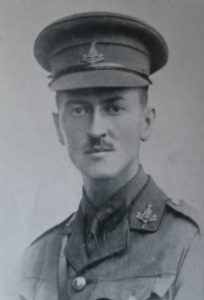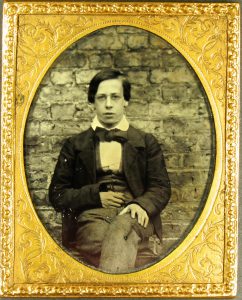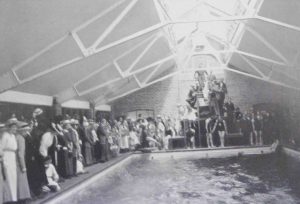Last week I attended the UKAD Forum at The National Archives in London. The title of the forum was ‘Born Digital Realities’. It was reassuring to find that lots of organisations are all looking for solutions to similar issues around getting digital material, cataloging and providing access. Below are my notes, in case others working in archives can take anything useful from them.
Building The National Archives ‘Discovery’: born digital realities (The National Archives)
1. Building processes to appraise, catalogue and make digital material accessible
a. How do we manage sensitivity review at scale – e.g. identifying material that needs to remain closed for data protection reasons?
b. What metadata is required?
c. Do we need lots and lots of levels when arranging, or is usability enhanced by flattening the hierarchy to an extent and retaining the provenance trail by showing the file structure in the description?
d. The National Archives are describing everything to item level. Is there a way of doing this on a lower level of resources?
e. How can I ensure that where material is accessible to the public, it is searchable and easy to use? How can I incorporate the searching of digital material text into catalogue searches on my catalogue?
Archivist and Donor –deposit and transfer (Christopher Hilton, Wellcome Library and Simon Wilson, Hull History Centre)
2. Question of ‘who owns the stuff’!
a. Issue of donors also giving copies to other institutions
b. Need for clarity about intellectual property rights
3. Fears by donors about whether information can end up online when they weren’t expecting it – need for clarity and trust over the process, how access works, how it can be limited.
4. Useful to find a few supportive people/groups to use as a pilot
5. It’s helpful if the methods of getting digital material from organisations have a mimimal impact on how the organisation works, otherwise no one will get round to it!
Archivist and User: access and reuse (Fran Baker and Caroline Martin, University of Manchester Library)
6. Dealing with email collections – library tried this with one organisation they were already getting material from.
7. University of Manchester Library sampled their ‘designated community’ to look at access, e.g. asking whether researchers wanted traditional finding aids. The ability to search and filter was important.
8. Are there alternative ways of displaying information, particularly large quantities of data, and creating ways for researchers to find what they need and to see connections – visualisations, network graphs etc – see Stamford projects (MUSE and ePADD)?
Lightning Thoughts
9. Challenge of getting balance right so that search results are not swamped by digital material results, in effect hiding paper material.
10. How do you decide whether to collect something in paper or digital format? What is deemed the definitive version by the creator? Having a digital version may increase what can be done with the item later on, or at least make it easier.
Syncronising born-digital metadata (Christopher Hilton, Wellcome Library and Christopher Fryer, Parliamentary Archives)
11. Both organisations linked catalogue software to their DCMS.
12. Additional catalogue fields were created (file path, date created, date last modified, preservica ref, file type, URL). Extra fields were added on a pragmatic basis.
13. Issue of how to describe extent in a way that is useful to the end user – just including number of kb may not be all that useful!
14. Try to set up workflows first, and automate where possible. Investing the time initially will help later.
15. May be useful to include something in the notes to indicate to users where a description has been automatically generated.
16. Should you change file names to something more helpful to the end user, and where do you record the original file name?
17. Aim is to integrate digital and paper collection information, so that the end user interacts with the same system for everything, regardless of format.
Spotlight on the Digital (Karen Colbron, JISC)
18. Digitised collections are often hard to find.
19. Users are typically looking for item level.
20. JISC report – ‘Improving discoverability of digitised collections…’
21. Avoid silos
22. JISC guide – ‘Make your digital resources easier to discover’.
Final Thoughts
23. The record keeping system is a whole – it is possible to rework how elements fit together within that system, and we should be thinking critically about what we do.
My Planned Actions
• Join UKAD community
• Look at process of cataloguing digital material – do I need to create extra fields, how might users search for material, how can I make the process more efficient? Is it feasible to catalogue to item level, at least with very basic information?
• Read JISC reports on making digitised collections easier to discover



